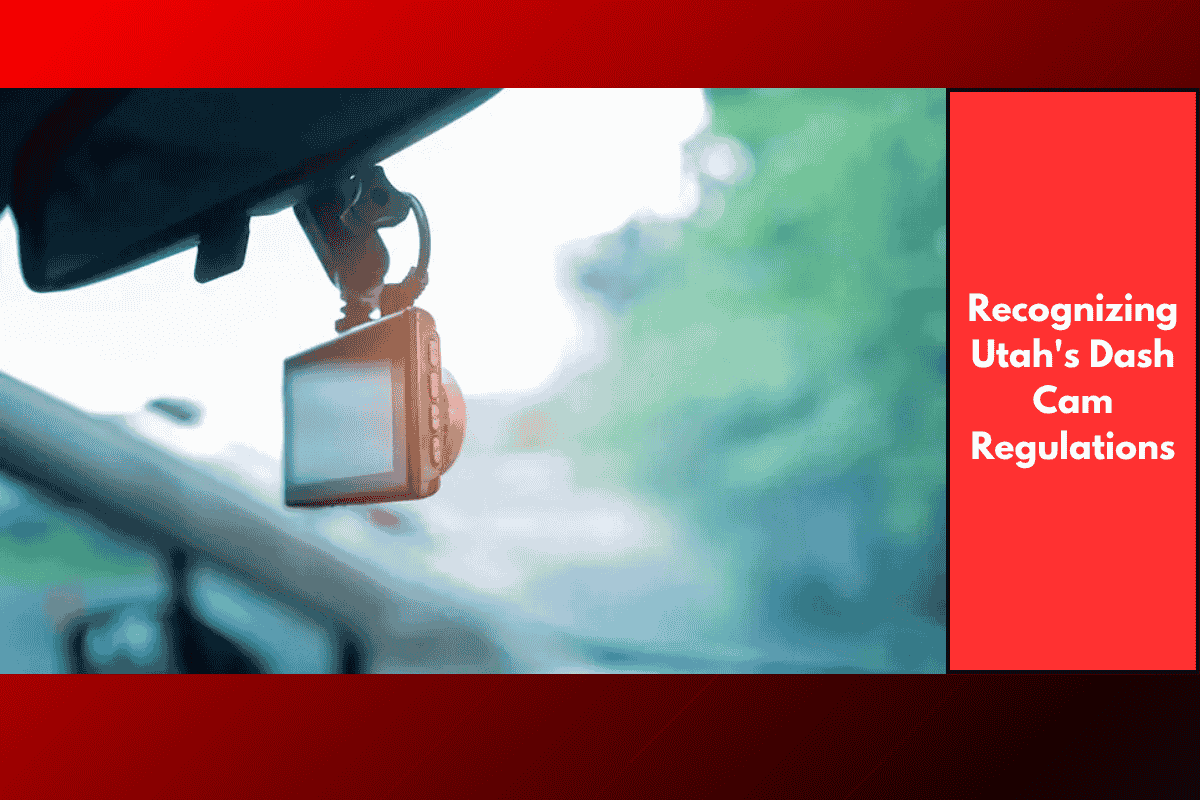As more drivers equip their vehicles with dash cams, it’s important to understand the laws and regulations surrounding their use. Dash cams have become popular tools for recording events on the road, offering protection for drivers in case of accidents or disputes. However, each state has its own rules on how these cameras can be used, and Utah is no exception. In this article, we’ll explore the key regulations surrounding dash cams in Utah and what you need to know to stay compliant.
Utah’s Laws on Dash Cams
In Utah, there are no specific state laws that prohibit the use of dash cams in general. Drivers are allowed to install and use dash cams freely, but there are certain considerations to keep in mind to avoid legal trouble.
One key regulation concerns privacy. If your dash cam is recording footage of private areas, such as inside someone’s home or private property, you could be in violation of Utah’s privacy laws. It’s crucial to ensure that your dash cam only records public spaces and does not violate the privacy rights of others. This is especially important when recording audio, as Utah is a two-party consent state when it comes to audio recording.
Audio Recording and Privacy Concerns
Utah’s two-party consent law means that if you’re recording audio, all parties involved must consent to the recording. This could be an issue if your dash cam captures conversations inside the car or between you and others. For instance, if you record a conversation with someone without their knowledge or consent, you could be violating state law.
To stay compliant, it’s a good practice to either disable the audio recording feature on your dash cam or make sure all passengers in your vehicle are aware that the dash cam is recording. If you’re only using the dash cam for video, there are fewer concerns, as visual recording in public spaces is generally allowed.
Dash Cam Placement Regulations
Another consideration when using a dash cam in Utah is its placement in your vehicle. While Utah doesn’t have specific rules about where a dash cam can be placed, the general rule is that any device, including a dash cam, should not obstruct your view while driving. Utah Code 41-6a-1626 states that nothing should be placed on the windshield that might obstruct the driver’s view of the road. This applies to dash cams as well.
To avoid any issues, make sure your dash cam is mounted in a position that doesn’t block your view of the road, such as on the rearview mirror or near the dashboard without obstructing your field of vision.
Dash Cam Footage and Legal Use
Dash cams can be valuable tools in case of accidents or legal disputes, but the footage from your dash cam could be subject to scrutiny. If you need to use your dash cam footage in court, it’s important to know that the footage must be authentic and unaltered. This means that if you plan to use your dash cam footage as evidence, you should ensure that the data has not been tampered with and can be verified as accurate.
Dash Cams and Law Enforcement
If you are stopped by law enforcement, you are not required to give your dash cam footage to officers unless they have a warrant. However, officers may ask for the footage, especially if it relates to an investigation or accident. If you choose to share your footage, make sure you understand your rights regarding the release of personal data and consider whether it’s in your best interest to provide it.
In Utah, using a dash cam is generally legal, but it’s important to follow regulations related to privacy, placement, and audio recording. Always be aware of your rights and responsibilities when recording, and ensure that your dash cam does not interfere with your ability to drive safely. With the proper knowledge and precautions, a dash cam can be a valuable tool for protecting yourself on the road.
SOURCES
[1] https://matrackinc.com/dash-cam-laws-by-states/
[2] https://www.ddpai.com/blog/dash-cam-laws/
[3] https://le.utah.gov/Session/2025/bills/introduced/HB0565.pdf
[4] https://facit.ai/insights/dash-cam-laws-by-state
[5] https://www.expertmarket.com/dash-cams/dash-cam-laws-by-state














